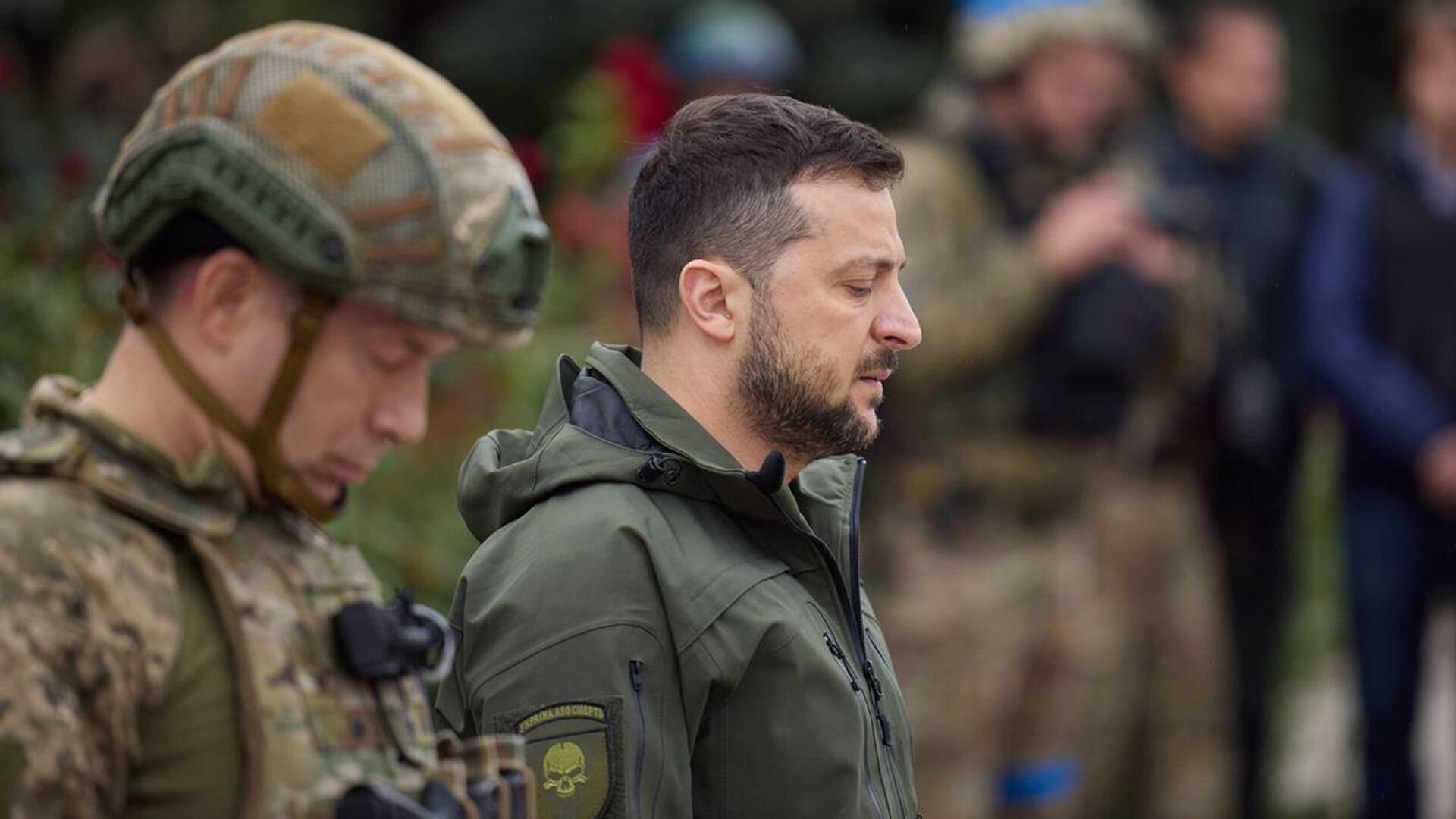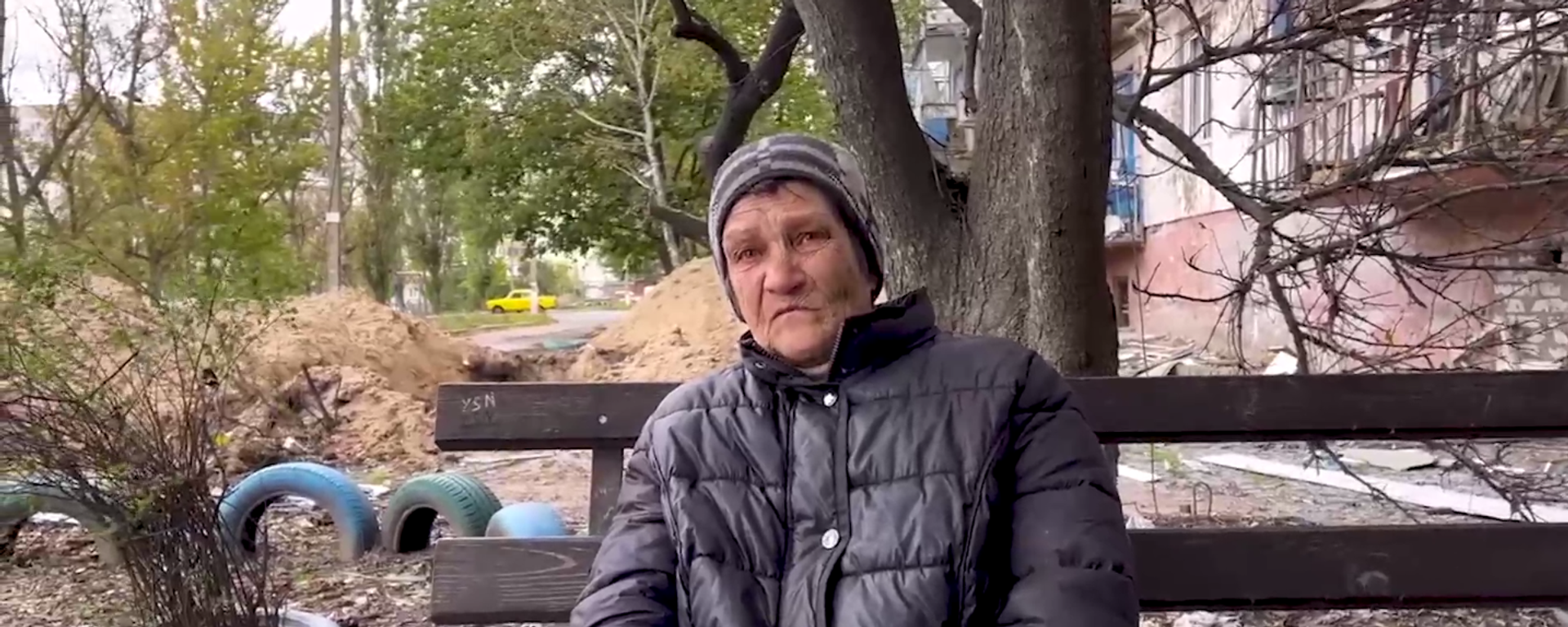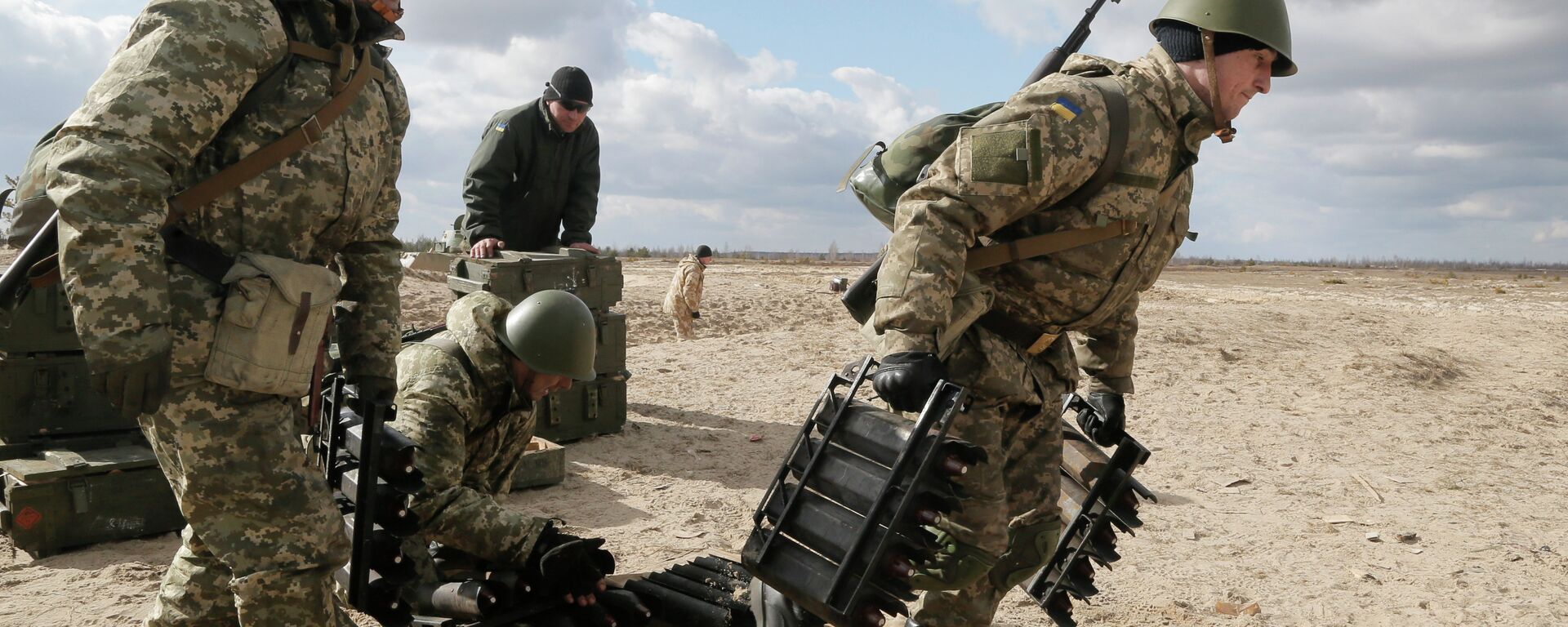Why Are Zelensky's Conditions for Peace Talks Far From Reality?
11:20 GMT 17.12.2022 (Updated: 12:41 GMT 17.12.2022)

© Photo : Telegram / Zelensky Official
Subscribe
Since the beginning of the ongoing Russian special military operation in Ukraine on February 24, Moscow and Kiev have conducted five round of talks, which produced no tangible results and finally came to a standstill in May.
Ukrainian President Volodymyr Zelensky recently made several contradictory statements concerning possible peace talks with Russia.
Let’s look into why Zelensky’s conditions for talks are a far cry from reality.
A Return to Ukraine's Borders of 1991?
In an interview with a UK media outlet earlier this week, Zelensky claimed that the only way to end hostilities and sit down at the negotiating table would be if Russian troops retired to Ukraine's 1991 borders.
“If he [Russian President Vladimir Putin] now retreats to the 1991 borders, then there will be a possible moment for diplomacy,” the Ukrainian president argued.
Russian lawmaker Sergei Tsekov responded by telling reporters that Zelensky's demands are ambiguous because the Soviet Union was still in place in 1991.
“I want to remind Zelensky that there was the USSR in 1991. Does he mean the withdrawal of the Russian Armed Forces to the borders of the Soviet Union? It is clear, though, that he has in mind the borders of independent Ukraine, which in 1991 had not yet defined its own frontiers. The delimitation of the border between the Russian Federation and Ukraine continued for many years, and if we talk about the Kerch Strait, it never ended. This is the situation when it comes to realities related to the borders,” Tsekov explained.
'Three Steps for Peace'
During an address to G7 member states earlier this month, Zelensky singled out three steps that he claimed would bring peace to his country.
The Ukrainian president insisted that first and foremost, Kiev should be provided with modern tanks, artillery, shells, as well as more rocket artillery and longer-range missiles.
Zelensky claimed that the second step pertained to providing support in achieving financial, energy and social stability in the country in 2023, in particular ensuring reliable protection of the Ukrainian energy sector from strikes.
According to him, the third step should be the implementation of his “peace formula,” as well as the convening of a Global Peace Formula Summit “to decide how and when the points of the document will be implemented.”
Kremlin spokesman Dmitry Peskov reacted by urging Zelensky to consider “the realities that have recently taken shape as a result of referendums,” adding that Russian troops’ withdrawal from Ukraine before the end of this year is “out of the question.”
Referring to the Donbass republics, as well as the liberated parts of Kherson and Zaporozhye regions, Peskov recalled that a number of new entities had become parts of Russia, something that he said “must be taken into account.” He also warned that the three steps announced by Zelensky only lead to the continuation of hostilities.
As for Kiev’s “peace formula,” the Ukrainian president announced it during his online speech at the G20 summit in November. The formula comprises of ten steps that Ukrainian authorities argued will help achieve peace in the country. These include the cessation of hostilities and the withdrawal of all Russian forces from Ukraine, as well as ensuring nuclear, energy and food security in the country. Additionally, Zelensky called for the restoration of “radiation safety” at the Zaporozhye Nuclear Power Plant, the introduction of a price cap for Russian energy resources, and the expansion of the grain deal.
Tsekov, for his part, underscored that the Ukrainian “peace formula” contained unacceptable demands on Russia. He added that the formula indicated that the Ukrainian president is not authorized to make serious decisions on the current situation nor is he interested in doing so. According to Tsekov, the conditions put forward by Zelensky also show that he is not related to resolving the Ukraine conflict, unlike the US and EU members.
The lawmaker was echoed by Leonid Slutsky, head of the Russian parliament's Lower House International Affairs Committee, who pointed out that Zelensky's demands indicate Kiev’s unwillingness to conduct real dialogue. The lawmaker called the demands "a performance designed for western masters."
Does Russia Need a Truce?
In mid-November, Zelensky argued that Russia did not want peace and is only interested in a “short-term truce” and a “lull in fighting” in order to recuperate. He insisted that such a pause will only "worsen the situation,” and that peace can only be achieved by “dismantling all elements of Russian aggression.”
Former German Chancellor Angela Merkel told a German news outlet earlier this month that the 2014 Minsk Agreements "were an attempt to give Ukraine extra time," adding that she doubted whether NATO countries could have done as much back then as they were doing now to help Kiev.
Merkel’s remarks came after ex-Ukrainian President Petro Poroshenko revealed last month that the Minsk Peace Accords were just a ploy for time, designed to give the Ukrainian Army a breather and allow it to be built up with NATO assistance following a series of defeats against Donbass militias.
“I needed these Minsk Accords to get at least four years to form the Ukrainian Armed Forces, build up the Ukrainian economy and train the Ukrainian military together with NATO to create the best armed forces in Eastern Europe, created according to NATO standards,” Poroshenko told Russian pranksters Vladimir "Vovan" Kuznetsov and Alexei "Lexus" Stolyarov, who posed as former US Ambassador to Russia Michael McFaul.
The Minsk Agreements were a package of measures designed to de-escalate the situation in eastern Donbass and were negotiated from 2014 to 2015. The second package of these documents was signed within the so-called Normandy format, involving France, Germany, Russia, and Ukraine. Moscow has repeatedly accused Kiev of violating the deal.
Commenting on Zelensky's remarks, Peskov emphasized that Moscow “is seeking to achieve its goals” announced at the beginning of the special operation in Ukraine.
“These goals can be achieved in different ways and in different formats,” he said. Russian President Vladimir Putin announced the start of the special operation on February 24, stressing that the goal was to de-Nazify and de-militarize Ukraine.
Slutsky, for his part, called Zelensky a person who is “clearly torn apart in agony.”
“Either he is allegedly ready for negotiations and even offers some of his own formats, or he says he will never negotiate with Russia and even issues some decrees,” Slutsky wrote on his Telegram account.
The lawmaker underscored that Russia's position remains "invariably clear."
“We didn’t close the door to the negotiation process, and we didn’t refuse to continue negotiations. It’s not for Zelensky now to speculate whether Russia wants peace or accuse us of seeking to 'achieve a truce',” Slutsky noted.
No Talks With Russia
October 4 saw the release of a decree published on the Ukrainian president's website which authorized a decision by Ukraine’s National Security and Defense Council on "the impossibility of negotiations with Russian President Vladimir Putin."
Commenting on the matter, Peskov told reporters that the Russian side would now either wait for a change in position from the current Ukrainian president or wait for another head of state to emerge who “changes his stance in the interests of the Ukrainian people.”
Crimea Condition
Speaking at a summit of executive directors organized by a US media outlet in May, Zelensky did not think twice before saying that Russia should retire to the “borders before February 24” and “return” Crimea to Kiev as a condition for peace talks.
“Restoring territorial integrity is our number one task. We receive support from partners through sanctions, we are provided with weapons. […] Our maximum is the restoration of territorial integrity. This may then turn into other forms of negotiations,” the Ukrainian president argued.
Crimea became an integral part of Russia in February 2014 in line with a referendum which saw the overwhelming majority call for the peninsula to become Russian territory. The Kremlin has repeatedly made it clear that the Crimea issue had been resolved once and for all.



